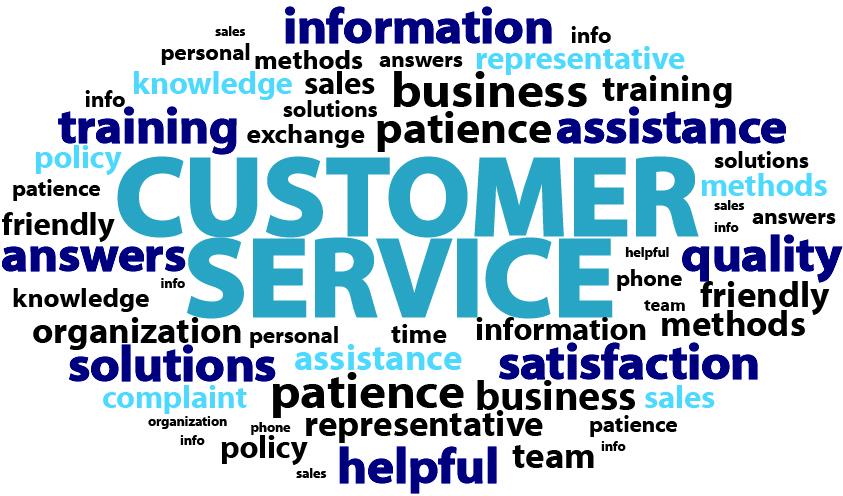What are the three most important things in customer service?
[ez-toc]
How can a company flourish? This is a very common question. ‘A company can succeed by participating in networking events, by forming strategic partnerships, by staying dedicated to its mission’. These are the answers that we get to hear. However, what most people fail to understand is that customers are the backbone of any organization.
They can make or break your company. Thus, the very first thing that a corporation needs to consider is its customers, if it wants to prosper. Some companies like Optimum have already started working on their customer care sectors. What can you expect after calling the Optimum customer service department? Round-the-clock support, assistance without delay, and customer-friendly representatives would be our answer.
In simple words, any company that trains its customer service representatives to be available 24/7 in order to assist the customers and treats them with kindness and compassion is already on the road to success. So, the next time you see someone stressing over their strategic partnerships or profit management, tell them to make customers their priority and the rest will automatically follow.
We are aware that most people don’t pay much heed to their customer care departments and that is exactly why we are writing this article. To enlighten you about the most significant factors in customer service. If you are one of those companies who are having a difficult time making profits, well guess you are at the right place. Keep reading and don’t forget to make notes.
1. A professional approach to customer service must be adopted
Let us focus on professionalism initially. Professionalism is undoubtedly the most fundamental of the three key elements of customer service and is the one we are initially required to exhibit upon entering the office.
Nevertheless, maintaining composure when dealing with an irate customer can be challenging. In the end, it takes practice and experience to become assured and composed under pressure. The following are the key elements of professionalism in customer service.
- Being quiet, stoic, and cool
First and foremost, professionalism entails maintaining composure at all times. It might be simple to get defensive and reply to a customer’s concerns with the same tone and volume whether they are dissatisfied with a product, an interaction with a staff, or just the current scenario.
Mirroring a dissatisfied customer’s actions, however, rarely resolves the issue. Nevertheless, remaining composed gives them confidence that their issue can be resolved and that you are willing to assist.
- Being able to learn from unpleasant customer experiences
Speaking of unpleasant encounters, professionalism in customer service also entails viewing each one as a chance to grow. Experiences with difficult clients typically result from both sides of the problem, much as a disagreement with a friend or member of the family.
As a result, even if a customer uses an immature tone or responds inappropriately, there is typically a good reason for their dissatisfaction. To avoid future conflicts like this, discover the cause and concentrate on finding a solution.
- Treat your employees the same way you treat your customers
Treating your employees, the same way you treat your clients is the final element of professionalism. It is simple for many business owners to adopt the “eye on the prize” mentality and prioritize their clients above everything else.
Employee happiness, however, naturally tends to decline when client happiness is prioritized over it. Employee dissatisfaction at that point makes it impossible for them to assist in making clients delighted.
2. Communication must be done well to provide good customer service
In order to provide exceptional customer service, you must be able to communicate effectively with both easy-going and challenging clients as well as with internal and external customers (other workers and that outside of your organization).
Service can suffer from a lack of good communication in a range of contexts, including both internal, within the company, and external, outside the organization, with a variety of consumers. These contexts include face-to-face interactions, telephone conversations, and emails.
To effectively communicate with customers, one must be able to: listen to and comprehend their point of view or problem; manage their emotions; organize and prepare their thoughts; speak clearly and succinctly, and respond to or follow up on questions directly and in a timely manner.
It needs practice because communication is both an art and a science. A few techniques to utilize to promote improved customer service include developing self-awareness of communication strengths and limitations and teaching skills through training, role-playing, scripts, and dialogue coaching.
But take note: not all programs for developing skills in customer service are made equal. It is clear that traditional lectures won’t cut it. Employees must put the new habits into practice and receive feedback from a qualified professional as they do so.
3. Continue to provide customer service with a ‘people-first’ attitude
The third crucial component of excellent customer service is a mindset that puts people first. Although having a professional and patient demeanor is crucial when dealing with customers, the most important aspects of providing high-quality service are all humanistic.
Do my consumers feel understood and listened to when they express a concern? “Do they feel appreciated and valued when they buy something?” and “Do they realize that my team and I see them as people, not as a potential customer?”
Hence being empathetic and listening to the complaints of the customers attentively is like lending a shoulder to the customers and this makes them feel very special.
Final words
It is critical to keep in mind that customers prefer self-service, seek prompt responses to their inquiries, and value personalized experiences if you want to deliver top-notch customer service. The most significant issues in customer service can be met with the aid of the feelings of empathy, kindness, and compassion. You will be well on your way to winning your customers’ hearts if you can rise to the occasion and fulfill the demands.






